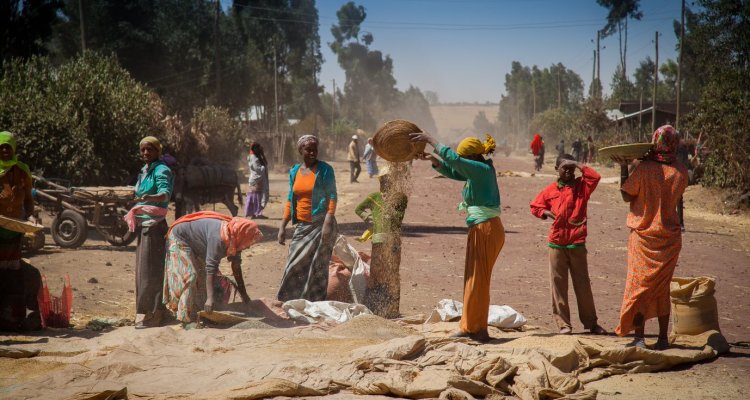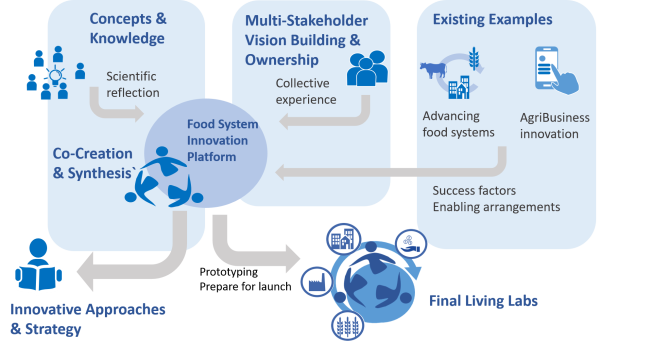
Project description REFOOTURE - Food Futures Eastern Africa
Regenerative and inclusive food systems are promoted. But funders, governments and investors are looking for solid evidence to back up claims that regenerative and inclusive agriculture can restore degraded land while ensuring fair income. The IKEA Foundation has challenged Wageningen University & Research to collect this evidence.
What is REFOOTURE?
REFOOTURE stands for rethinking and redesigning the future of food towards a regenerative and inclusive food system.
RE relates to regenarative, but also symbolizes reviewing, rethinking, redisigning, renewing. RE refers to the activities that are taking place in the living labs and beyond.
FOOTURE is a merger of Food and Future. FOOTURE and FUTURE sound similar, illustrating the intrinsic dependency between Food and Future. This certainly matters for East Africa.
The acronym REFOOTURE marks co-creativity. Jointly creating a better future of food. REFOOTURE supports the East African Living Lab partners to operationalise the principles of regeneration and inclusivity into the transformation of their food system.
REFOOTURE also brings together international and East African evidence to boost investments in line with locally designed pathways for food system transformation.
Regenerative and inclusive food systems: what is it?
Regenerative food systems assumes to minimalize the use of natural resources and even improves the natural environment, hence reversing trends of environmental degradation. In the meantime, these food systems ensure fair income for farmers and are serving the entire population.
Food systems innovation platforms
Following a food systems approach, we will initiate Food systems Innovation Platforms as Living Labs to enable a transdisciplinary collaboration between “doers”, “enablers” and “thinkers”. Through interaction, dialogue and learning from evidence and experiences, we seek to improve Capabilities, Opportunities, and Motivation among the stakeholders to engage in a systemic innovation.

Living labs
Together with our East African partners, we support the launch of Living Labs in Kenya, Ethiopia and Uganda. These living labs play an important role to co-design the pathways towards regenerative and inclusive food systems. Opportunities and challenges will be discussed. Innovative practices will be explored and the enabling environment will be strengthened. This action-oriented approach is chosen to create the highest possible impact while collecting and making use of the evidence.
Strategy & White paper
All evidence and experiences will be summarised in a Strategy & White Paper. These papers contain a thorough evaluation from the international community in science, business and policy as well a reflection to what extent Living Labs can be instrumental within the transition process. The Strategy and White Paper guide future strategic investments for the international donor community and highlights the Eastern African interpretation of Living Labs as a mechanism to sustain permanent innovation towards regenerative, inclusive food systems.
Co-designed and owned concepts
Experiences from the Living Labs comprise a co-designed approach of Living Labs, including a self-sustainable business model allowing their financial and institutional sustainability, a tailored governance structure, and a set of key stakeholders that will endorse the concept for future implementation.
